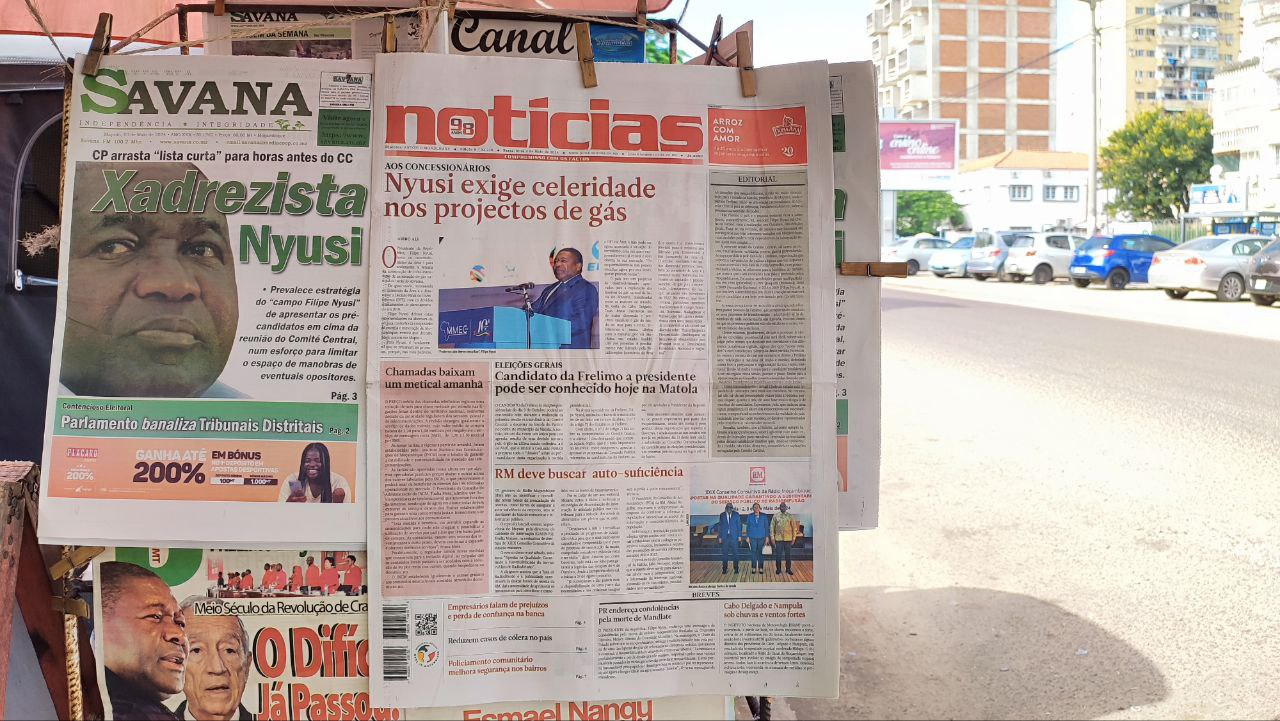Hello, and welcome to our look back at last week in Mozambique.
The news agenda continues to be dominated by what opposition party Renamo, and others, are now calling the “post-elections crisis”. Demonstrations took place in Nampula, Nacala, and Maputo on Friday, resulting in the deaths of at least one police officer and one civilian; many people were also arrested. Our reporters on the ground have made this short video:
Follow updates on the fallout from the elections on our Telegram channel, here:

And of course we are providing daily updates for subscribers in our emailed Daily Briefing.
Also last week: On Monday, we reported on the news that the Mozambican government has agreed to pay a total of $130m to eight financial firms in its out-of-court settlement over the so-called "hidden debts" or "tuna bond" corruption scandal.
The state reached a deal earlier this month with Swiss bank Credit Suisse and other lenders to settle each side's claims against each other, relating to loans raised by ProIndicus, one of three state-owned companies involved in the affair.
In a trial in the High Court in London, the lenders had been seeking repayment of their credit, while the government had been trying to have the state guarantee over the loans declared invalid, and was also suing Credit Suisse and others for corrupt behaviour in how the loans were agreed.
You can read the full story here.
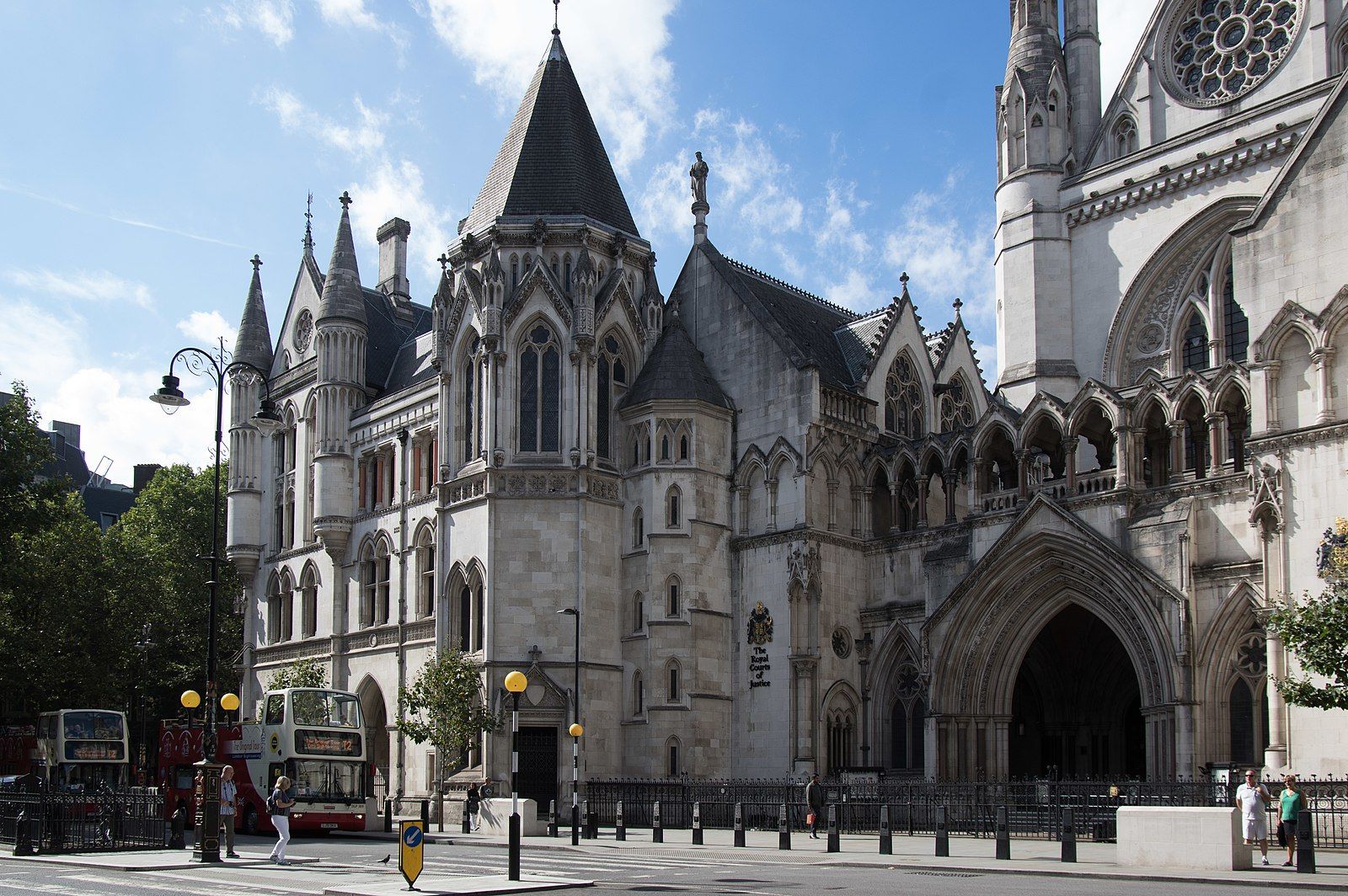
And on Wednesday, the National Election Commission (CNE) voted to approve all the results of the municipal elections.
Ruling party Frelimo’s eight members of the 15-person commission voted in favour, against five representing the opposition. Two abstained, including Bishop Carlos Matsinhe, the CNE president.
The preliminary results gave victory to Frelimo in 64 out of 65 municipalities, despite widespread evidence of electoral fraud in favour of the party. After the CNE’s announcement, violent protests broke out in a number of cities across Mozambique.

Have a great week ahead.
Week in Review
Monday
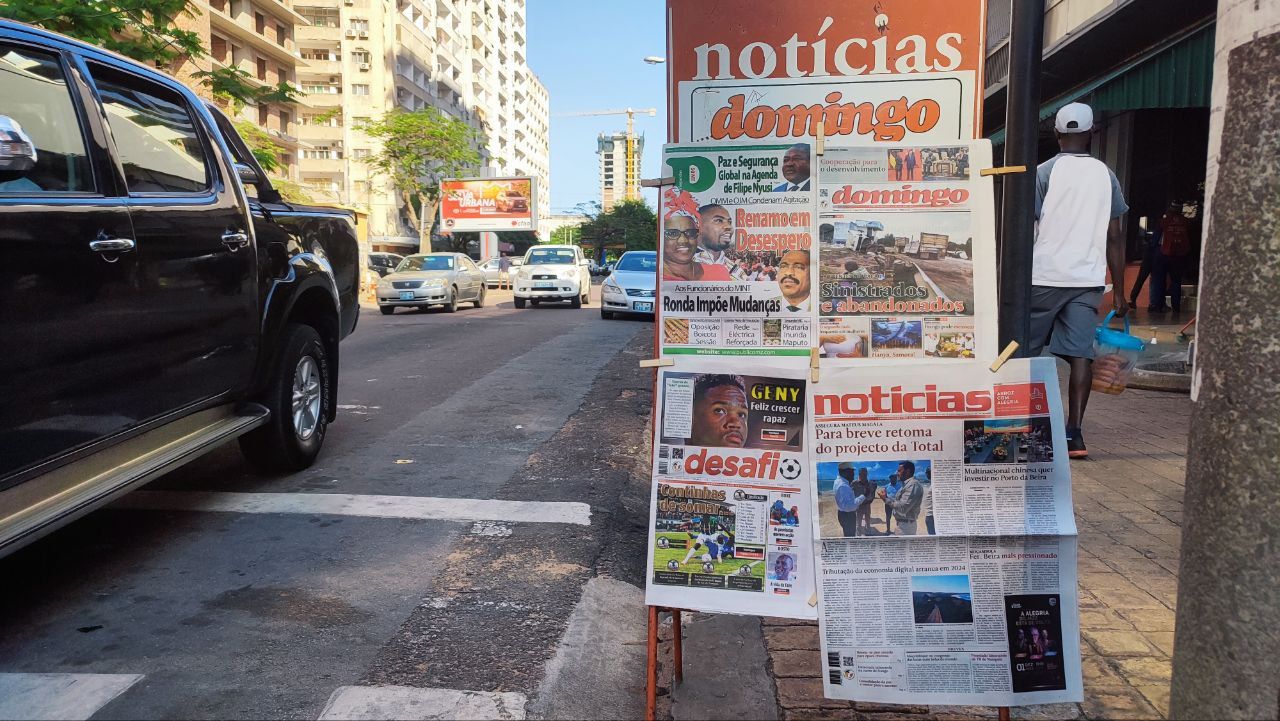
Mozambique is working on the final details of analysing a plan by Chinese firms to build two new terminals at the port of Beira, in Sofala province, Prime Minister Adriano Maleiane said during a meeting in China with the investors. The president of the group, Xiang Guangda, asked Maleiane for the project to be analysed more quickly. The group wants to increase the capacity for handling goods, saying that the port of Beira is under pressure due to the volume of goods passing through it. Rádio Moçambique did not mention the name of the group, saying that it was made up of Chinese and multinational companies that lead the African infrastructure construction market.
Despite Maleiane reportedly making positive noises about expanding the capacity of the port, it is questionable whether these new terminals will be built, or at least whether Chinese firms will be allowed to build them. Such a project would potentially do serious harm to Cornelder de Moçambique, the firm that holds the concession contract for the port of Beira, which it has just extended for another 15 years. There is significant investment by Mozambicans in Cornelder, including by the family of former president Armando Guebuza. Commercial and political interests are thus likely to unite against the move. The access channels to the port are restricted, preventing Capesize and Panamax-sized vessels from docking there.
Tuesday
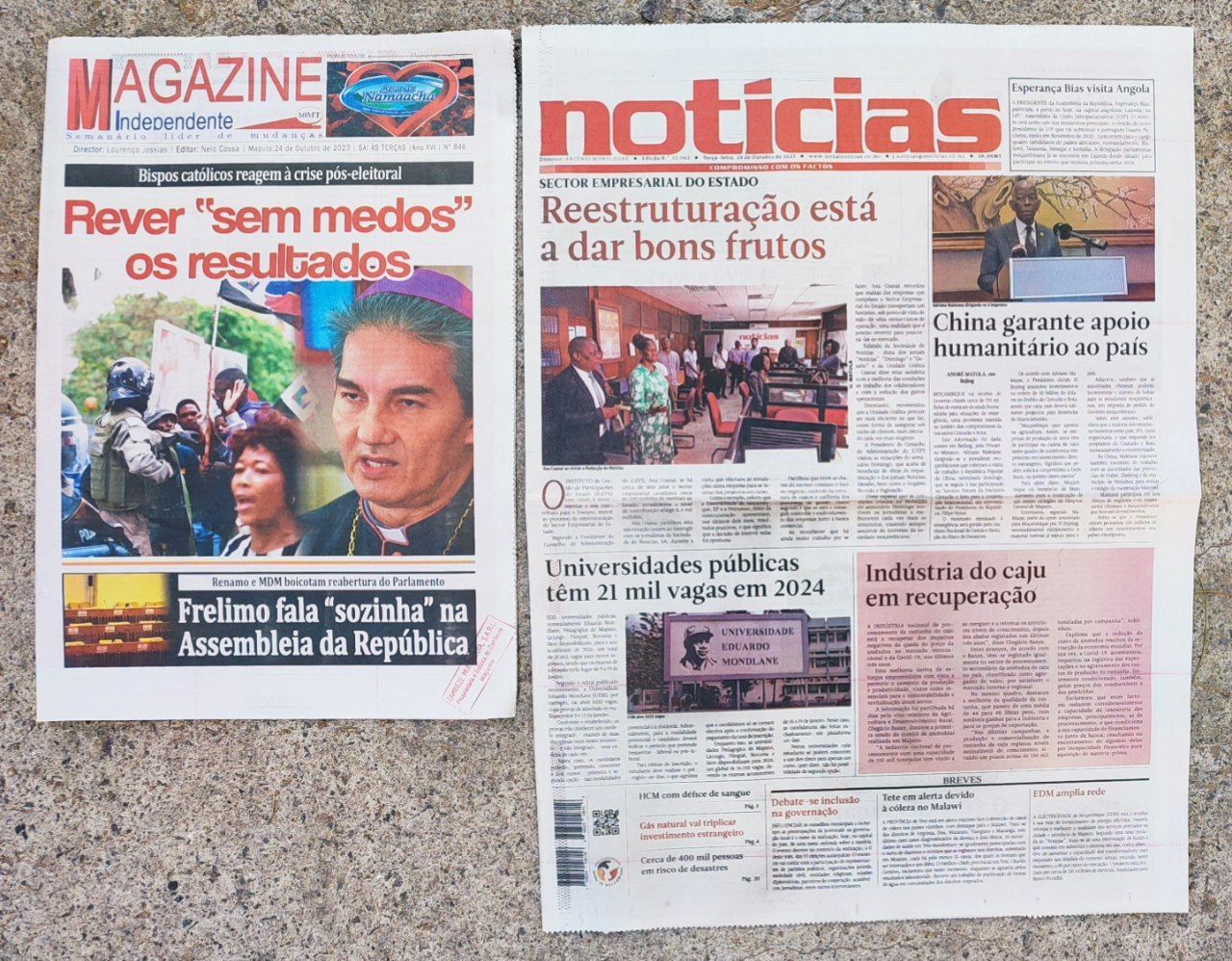
Mozambique’s largest opposition party Renamo will not take part in the 2024 general elections unless the real results of the local elections on 11 October are released, Venâncio Mondlane, the party’s mayoral candidate for the city of Maputo, announced at a press conference yesterday. Mondlane said that Renamo would not accept taking part in the elections with the same people running the electoral bodies who were responsible for falsifying the results. He added that the Attorney-General’s Office should hold them criminally responsible, while the National Elections Commission should replace its guilty members with new people, on the basis of a consensus.
Mondlane cannot claim to speak for Renamo on whether it will take part in the elections. His position and that of Manuel de Araujo, who believes he was cheated of the mayoralty of the city of Quelimane in the local elections, is more aggressive than that of Renamo leader Ossufo Momade, a veteran of the civil war when Renamo was a paramilitary force fighting the government, who is wary of the country slipping back into violence. Besides, Mondlane and Araujo have not been born and raised in the party, having both been members of the MDM party, which broke away from Renamo.
Wednesday
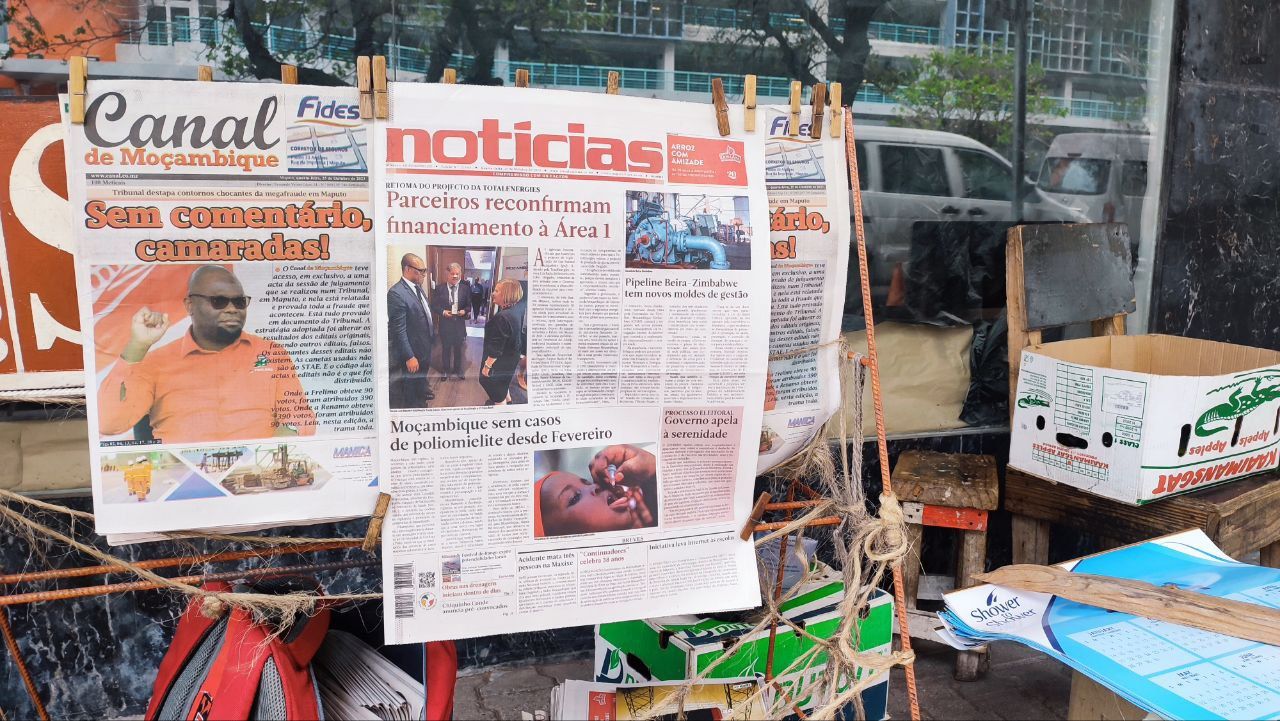
News that the Constitutional Council has overturned a lower court’s ruling that the local election result in Chòkwé district was invalid might at first appear to suggest that the higher court is willing to turn a blind eye to the widespread evidence of fraud and malpractice in favour of ruling party Frelimo in the 11 October elections.
In fact, the court is only upholding its constitutional role as the sole entity with the power to rule on elections, which means that it looks likely to reject all decisions from lower courts on the election results from earlier this month. But that does not mean that it will not make its own rulings, and in fact the court has promised to do so.
It has yet to make any, but the first signs are that the Constitutional Council will not simply do Frelimo’s bidding. As reported below, the court criticised the election authorities in Chòkwé for not giving the small New Democracy party accreditation to observe the poll. In a separate ruling, it has also rejected an appeal from the district elections commission in a Maputo suburb against a district court ruling overturning the election result there, on the grounds that the commission had no right to make such an appeal. The elections commissions and the election administration body, STAE, are both accused of carrying out electoral fraud on Frelimo’s behalf.
Thursday
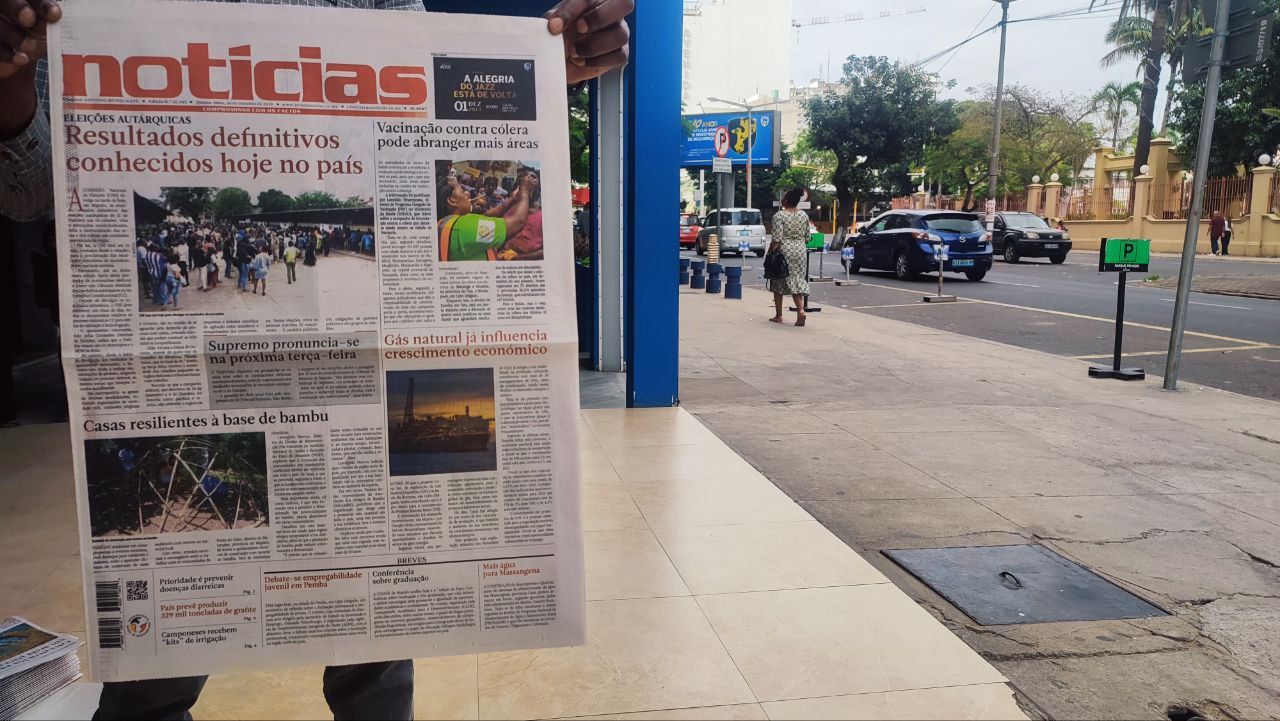
Thursday brought the news that the National Elections Commission (CNE) has approved the official results of the local elections on 11 October, in which ruling party Frelimo is supposed to have won 64 out of 65 municipalities. This despite the widespread and well-documented evidence of fraud and wrongdoing all over the country, and of a conspiracy by Frelimo to rig the vote in places where it could not otherwise win.
The physical embodiment of Mozambique’s conflict between pluralism and single-party authoritarianism is the president of the CNE, Bishop Carlos Matsinhe.
Co-opted by Frelimo into becoming the commission’s head, Matsinhe has a reputation for weakness. In the climate of anger at election fraud, this weakness has led to him being portrayed as actively supporting the stealing of the election. Twice in the past fortnight, Matsinhe has been the subject of unflattering cartoons in newspaper Canal de Moçambique, showing him assisting in Frelimo’s victory celebrations. His colleagues in the Anglican church in Mozambique have now distanced themselves from him, something that must call into question his career in the church.
Friday

Violent protests broke out in a number of major cities in Mozambique following the announcement from the National Elections Council confirming that Frelimo has won 64 out of 65 municipalities in the country, and Renamo none.
Renamo’s leadership has sought to calm the situation, encouraging demonstrators not to provoke police. It seems the party’s strategy is to continue with peaceful demonstrations in the days and possibly weeks to come. By contrast, it may be the authorities’ strategy to provoke trouble as a way of justifying banning further demonstrations.
Whichever way that plays out, Renamo and its supporters will want to maintain popular pressure on the Constitution Council (CC), which is now the only remaining recourse to appeal the results giving victory to Frelimo everywhere bar the city of Beira.
So far the signs are not good for those who hope the CC will overturn some of the results, which to the naked eye look to have been the result of blatant fraud. It has a track record of rubber-stamping Frelimo election victories, and ruling party insiders are confident that it will do so again.








